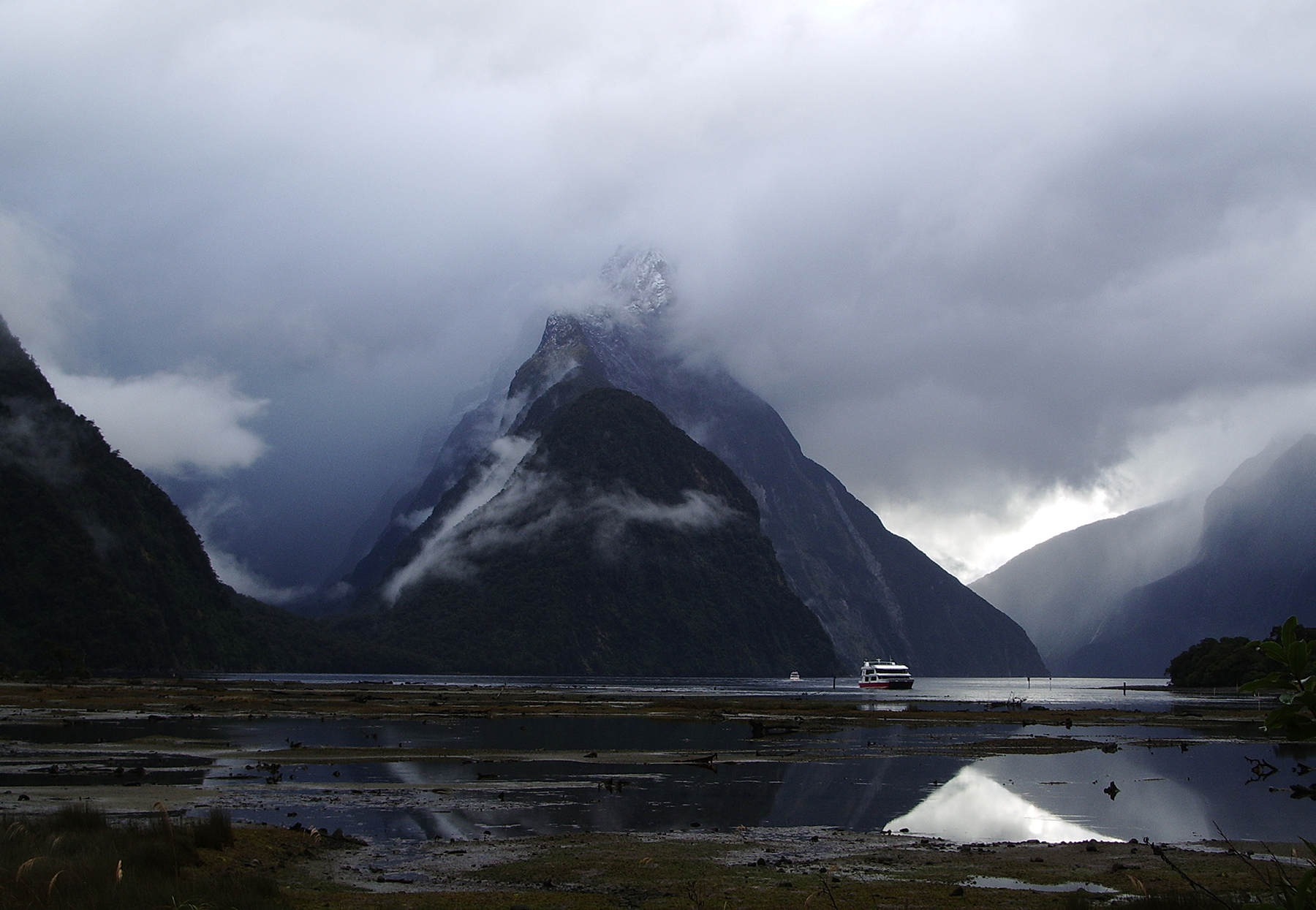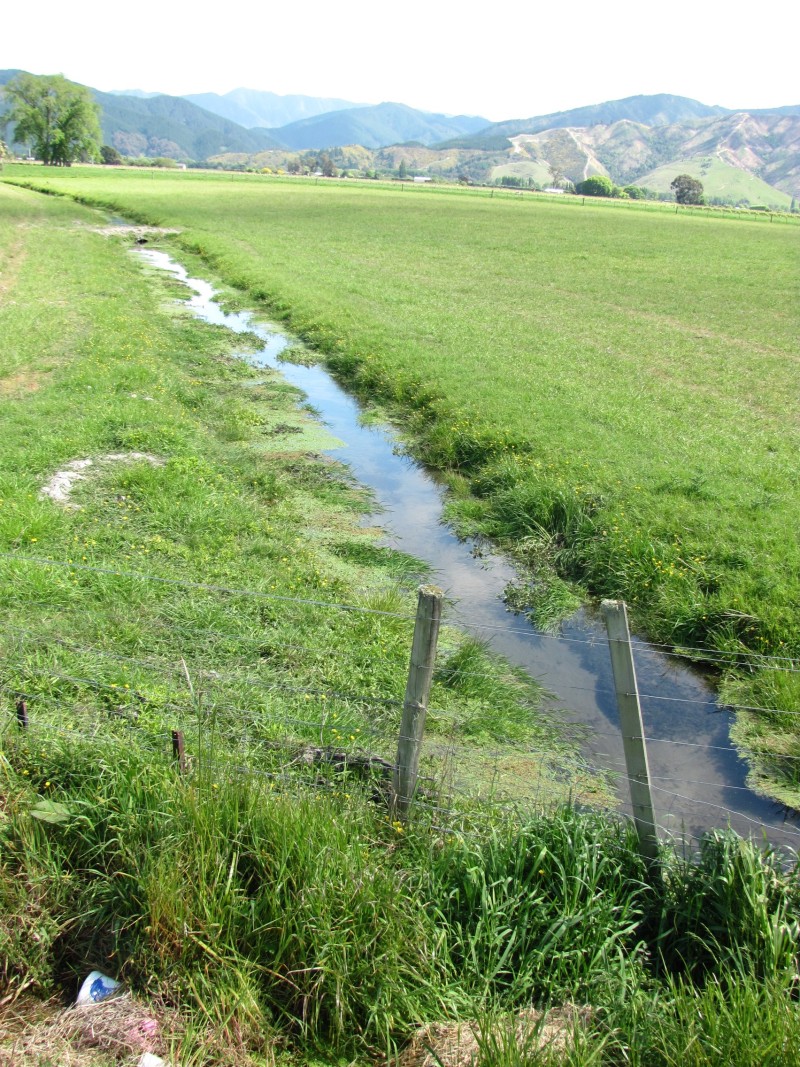In early 2015, the Environmental Defence Society published an account of biodiversity loss in New Zealand and the struggle to curtail it. It showed that present efforts are not nearly enough. The authors argue that the ongoing decline is a result of underlying social and economic forces that present conservation efforts don’t address. Far from simply a catalogue of degradation, Vanishing Nature tables a plethora of solutions, from grass-roots engagement through to large scale economic reform. Each solution will mean different things for different stakeholders and history tells us that only those with widespread support will generate genuine change. In this column the authors aim to articulate what Vanishing Nature means for business, and delves in to one of our key strategic solutions – the environmental consumption tax and rebate system, setting out what it might mean for the business world.
The environment is the greatest form of public wealth – our atmosphere, sea and freshwaters, soils, landscapes and native biodiversity. True prosperity will arise from an economic model that safeguards nature by providing for the wellbeing of humanity within environmental limits. Prosperity therefore includes notions of flourishing nature and a healthy environment as well as a vibrant economy with all four well-beings intertwined and indivisible. Vanishing Nature says we need to support practical grass-roots efforts for conservation, for science, for research and monitoring – but notes that activities like that cost time, resources and most especially money, and we need much, much more of it. So how could we raise this money and make it happen?
Vanishing Nature makes a case for removing the hidden environmental subsidies enjoyed by industries such as agriculture, fisheries and mining that generally degrade nature given current practices. Leaving the loss of nature out of economic decision-making (i.e. market failure) prevents the degradation of our environment from being appropriately accounted for, and enables those who benefit from its degradation to avoid paying that cost. Hidden environmental subsidies for primary sector businesses encourage ongoing environmental degradation and biodiversity loss. It also enables uneconomic, prosperity-eroding businesses to persist when they would likely be insolvent if their environmental impacts were fully mitigated or if their costs were fully paid.
The primary industries have been inordinately successful throughout New Zealand’s history at curtailing policy and regulatory responses to biodiversity loss, climate change and other issues including employment standards. They have also been very successful in ensuring that where laws and regulations exist, their implementation is generally substandard. That is why we think a different and novel strategy is required to halt the degradation of nature and the environment – in addition to improvements in more traditional approaches. This strategy must provide real benefits both to the primary sector (to compensate for the withdrawal of environmental subsidies) and to governments whose interests tend to align with the primary sector and economic growth. A real solution must be good both for the environment and the economy.
Grow prosperity – not GDP
We think the first step requires a shift in the economic discourse away from maximising GDP growth and towards maximising prosperity growth. Then, with this overarching goal in mind, we can devise novel economic institutions designed to foster prosperity growth, substituting environmental subsidies with opportunities to earn revenue from the provision of environmental goods and services. In this way, the primary sector can find direct economic benefits to compensate the cost of subsidy withdrawal. This is how society’s interest in a healthy environment and a vibrant economy could be aligned with private interests in wealth generation.
Tax the consumption of public wealth – not the production of private wealth
We think genuine, sustainable prosperity growth could be achieved by broadening and reconfiguring our tax base to substitute revenue levied from private wealth (income & company taxes) by instead taxing the consumption of public wealth. We believe that taxing degradation of the environment (and providing rebates for provision of environmental services) could resolve the current misalignment of interests in prosperity, private wealth and government revenue. We think partial substitution of income and company taxes by an environmental consumption tax (and rebate system) would facilitate economic growth by strengthening incentives for both productivity and environmental protection. People would get to keep more of what they earn and be incentivised to retain biodiversity and use environmental goods and services more efficiently.
There are many ways to design and implement environmental consumption taxes. One is to separately tax specific features such as greenhouse gases, nitrogen, phosphorus, fecal coliform pollution and water consumption. However, we think this would be unduly complex and cumbersome. Rather, it would be better to use a type of land tax in which the tax payable is based on land area and the intensity of its use as identified from high-resolution satellite imagery. Such a tax would put a price on all the major environmental impacts of different land uses – biodiversity loss, greenhouse gas production, accelerated runoff and pollution from nutrients, sediment, fecal coliforms and toxins. Low intensity land uses that supply largely natural ecosystem services would earn a rebate at a per-hectare rate commensurate with opportunity and management costs borne by the landowner and the value of those services to society. Thus different parts of a single property would be subject to different per-hectare tax rates based on the cover on, and use of, each part. A landowner could minimise tax liability by confining the most environmentally intensive uses to small areas and improving the state and legal protection of natural areas.
We think a broad-based environmental consumption tax would have important environmental, economic and social benefits. It could contribute much to halting biodiversity loss and environmental degradation by putting a price on the environmental inputs to commodities, products and services. Broadening the tax base with an environmental consumption tax could facilitate economic growth by enabling the reduction or even removal of growth-damaging taxes and improving the competitiveness of environmentally benign businesses by reducing their tax liability. Tourism, IT, service, manufacturing, health and education businesses would likely enjoy improved competitiveness associated with reduced tax liability and greater authenticity of environmental sustainability branding. The progressive nature of the tax should lead to social benefits via impacts on the wealth gap and property price inflation. Poor people rarely own intensively-used land and so would pay little of this tax. If income tax and/or GST were largely substituted by an environmental consumption tax then low-income earners should be major beneficiaries.
Clearly the impact on particular businesses of actions taken to halt the degradation of nature and the environment depends very much on the particulars of the business and of the regulation and policies adopted and how they are implemented. However, the fundamentals are clear. Those businesses that currently enjoy large environmental subsidies will be incentivised to change the way they operate to reduce their environmental footprint or face larger costs to continue business-as-usual. This will be true whether tougher environmental regulations are imposed or novel economic institutions are used to manage the economy and environment together. Businesses that have small environmental footprints stand to gain through lower overall taxation and a boost to broad-based economic growth. Businesses managing their operations with a clear focus on clean, green sustainability practices may find additional benefit in the substance and authenticity added to their brands.
There’s no question that this will prompt widespread debate and opposition, particularly from debt-leveraged land developers. But the benefits could be startling. It could propel New Zealand towards growing prosperity, to meeting international environmental commitments, to establishing our international brand as a cutting edge model of sustainability and to healing the damage of centuries of poor environmental stewardship.
So what are the alternatives? Business-as-usual means ongoing erosion of our prosperity through cumulative environmental degradation. Stronger environmental regulation cannot bring divergent public business and government interests toward alignment. Nor can stronger regulation promote practical grass-roots efforts for conservation, for science, for research and monitoring. Indeed, private interests and regulatory agencies would likely be aligned in their opposition to strengthened regulation. A novel institution that puts a price on private consumption of the environment and pays for its conservation would incentivise both practical grass-roots conservation effort and government-led research and monitoring to maintain the integrity of the system. Such a system could also generate substantial revenue for the public purse while promoting prosperity within a vibrant economy.
A land-based environmental consumption tax might just be the novel institution needed to align our divergent interests in the environment, prosperity and the economy and thereby halt the cumulative degradation of the environment upon which our prosperity ultimately depends.
See more on this and other solutions to protection our precious natural heritage in Vanishing Nature: facing New Zealand’s biodiversity crisis, 2015, Marie A Brown, RT Theo Stephens, Raewyn Peart & Bevis Fedder, EDS (order your copy online at www.eds.org.nz/publication/vannat.htm)
References
Hendy, S and P. Callaghan, 2013, Get Off the Grass: kick-starting New Zealand’s Innovation Economy, Auckland University Press, Auckland
Salmond R, 2012, The new New Zealand tax system: New Zealand taxes in comparative perspective, Institute of Policy Studies, Wellington
Tax Working Group, 2010, A Tax System for New Zealand’s Future, Report of the Victoria University of Wellington Tax Working Group, Centre for Accounting, Governance and Taxation Research, Victoria University of Wellington, Wellington
Foote, K.J.; Joy, M.K.; Death, R.G. 2015, New Zealand dairy farming: milking our environment for all its worth. Environmental Management DOI 10.1007/s00267-015-0517-x






Leave a comment